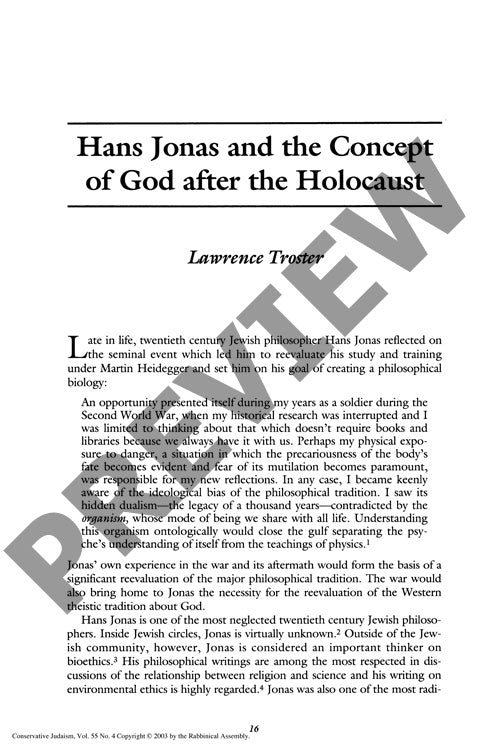Hans Jonas and the Concept of God After
Couldn't load pickup availability
The Holocaust forced a radical rethinking of God's nature and humanity's relationship with the divine - none more provocative than Jewish philosopher Hans Jonas's reconceptualization of deity as suffering, becoming, and deliberately self-limiting. Through his journey from Heidegger's student to World War II soldier, Jonas developed a three-stage philosophical response to modern nihilism: existential critique, metaphysical reconstruction, and theological reformulation. His philosophical biology extended existential categories to all living organisms, demonstrating how metabolism and "needful freedom" reveal inherent value throughout nature, thereby challenging mechanistic reductionism. Drawing on the Kabbalistic concept of tzimtzum, Jonas proposed that God's self-limitation at creation was absolute, making divine intervention impossible and placing the world's moral fate entirely in human hands. Textual analysis of Jonas's major works, particularly "The Concept of God after Auschwitz," reveals how his theology departs significantly from traditional theodicy. His distinctive integration of existential philosophy, environmental ethics, and Holocaust theology offers a compelling Jewish response to modern nihilism while fundamentally challenging conventional assumptions about divine power and human responsibility.

More Information
-
Physical Description
-
Publication Information
Published
ISBN
-
Publication Credits
Lawrence Troster

